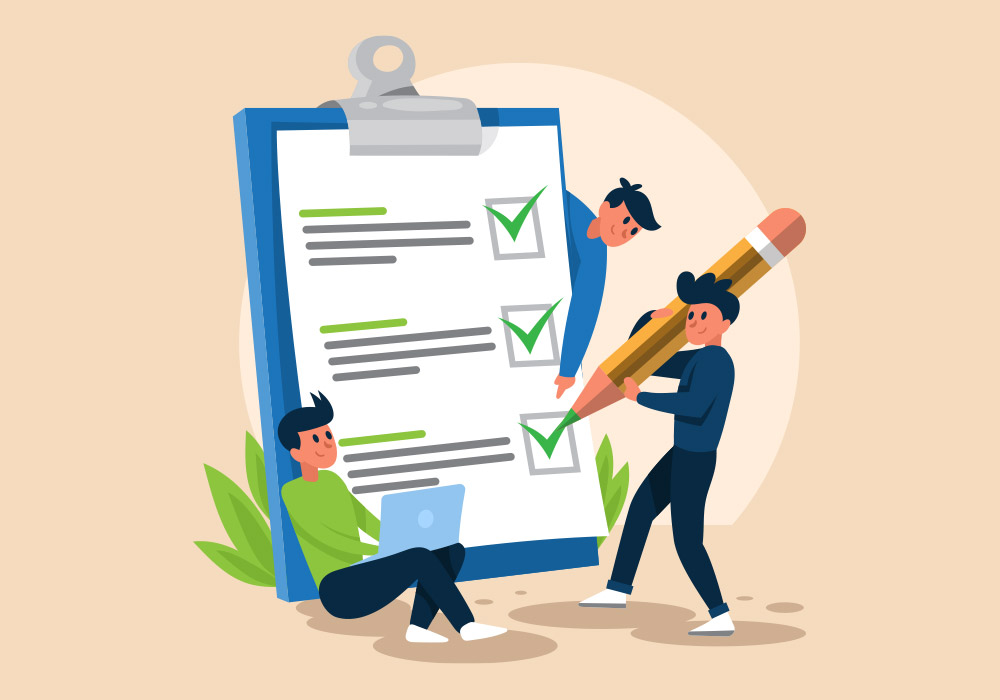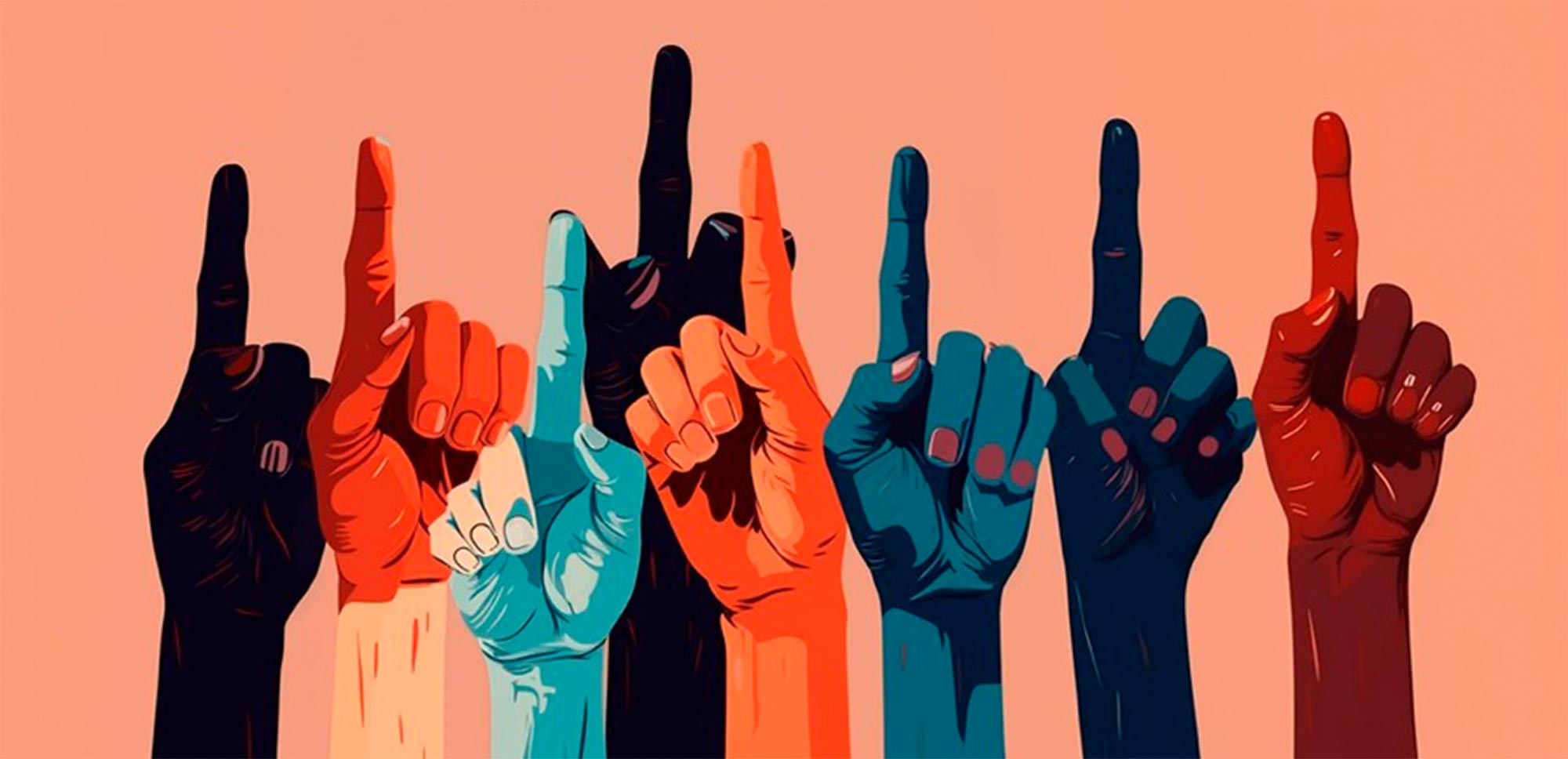Remember “Nosedive”, the first episode of Black Mirror’s third season? In this episode, the protagonist, Lacie, lives in a world obsessed with social status, where every interaction is rated on a scale of one to five stars. Her goal is to improve her rating so she can move into an exclusive apartment complex. But a series of catastrophic misfortunes drag her into a downward spiral of dismal ratings.
We’ve all experienced the weight of a negative evaluation. Whether in an exam, at work, in a review of a product or service we offer, from a friend or family member for something we did (or forgot to do).
Lacie’s story shows us how this system of constant evaluation affects us, especially if we’re not prepared to accept and take advantage of any negative assessment we may receive. That is precisely what we address in this article: How can we be open to criticism and use it to our advantage in our professional development?
What will I read about in this article?
- The effect of negative evaluations
- Two strategies for managing negative evaluations
- Restoring credibility after a negative evaluation
How negative evaluations affect our professional development
A negative evaluation is nothing more than a judgement by someone (evaluator) about something or someone (what’s evaluated) which is perceived and shared to have not met certain standards or expectations: it is negatively assessed.
Sometimes the evaluations are formal (an exam or performance at the end of the year), sometimes informal (a comment in the corridor about what has been done). Either way, we seem to be more exposed to possible negative evaluations than ever before.
A new evaluative paradigm surrounds us, especially with the dynamics of social networks, where the moments in which we evaluate and the actions that can be evaluated are constantly growing. We do it with the taxi service, the teacher’s class and the service received from the bank. In turn, VTC drivers can also evaluate customers, the teacher evaluates the student and the bank evaluates the customer. We like positive evaluations. This is the case, for example, with Instagram likes. Some people seek them incessantly, as it generates a new emotional and physical state of pleasure.

In this article we discuss the B-side of recognition. However, a negative assessment can also have a significant impact on motivation and productivity. Moreover, depending on the strength and relevance of the evaluation, it will also affect our professional and personal credibility (we have failed once, and the question remains whether we will fail again).
“A negative evaluation can also have important consequences on motivation, productivity and credibility”.
Two ways of dealing with negative assessments as seen in the Irish banking crisis
Along these lines, four professors set out to understand how credibility can be regained once it has “failed”. To do so, the academics examined how banking professionals coped with negative social evaluations that publicly criticised their competence, morals and judgement. Understanding how these professionals coped with their loss of credibility and dealt with the causes of these poor popular evaluations in such a delicate situation can shed light on less tense situations.
One of the most significant banking crises happened in Ireland, where the government announced a two-year state guarantee of domestic banks’ deposits, loans and bonds, along with a major bailout from the International Monetary Fund and the European Union. The harshest criticism, and therefore the strongest negative social assessment, was of banking professionals who seemed to always prioritise growth with questionable practices.
To understand how these professionals dealt with this negative social assessment, the authors examined the hearings of 51 banking professionals during the 49 days of public hearings at the 20-month enquiry into the banking crisis.
In the face of criticism for lack of competence and morality, the testimonies tried to regain the public’s trust in two ways: depersonalisation and personalisation.
Depersonalisation, when the negative evaluation is related to the context
Depersonalisation consisted of taking the focus away from their role and putting it in context. For example, in the face of criticism of lack of morality for having an aggressive lending policy, the statements tried to make people see that they’d been victims of market forces as well, and that they’d been unable to stop the trend.
We can all be immersed in moments that invite us to take certain kinds of actions: is it the fault of the professional or of the context? There’s a contextual part that is embedded, whether we like it or not, in all of us. To have the capacity to detect it and anticipate it is to own sociological imagination, as Wright Mills suggested.
Personalisation: taking charge of negative ratings
On the other hand, banking professionals chose to take a personalised approach. This consisted of showing their real concern in improving work processes after the crisis. In this sense, the testimonies expressed social concern about the consequences of the banking crisis, showed signs of regret for past behaviour, and spoke of a desire to restore public trust.

It is basically an honest exercise in understanding that sometimes we certainly get it wrong, but at the same time it’s not the end of anything, but a possible beginning. It is an opportunity to keep improving.
How to restore credibility after a negative assessment
Thus, the authors show us, with a somewhat radical but representative example, that there’s always the possibility of correcting and restoring lost credibility. When we receive negative evaluations in the future (sometimes justified, sometimes unjustified), the research invites us to take the following considerations into account:
- Examine what’s potentially true in the negative assessment and work to improve it (personalisation).
- Understand the external factors that may have contributed to the negative evaluation received (depersonalisation).
- Do not think that the negative evaluation is directed at us as a person, but at the task, service or action being evaluated.
- If possible, discuss with the evaluator to establish possible steps for improvement.
- Contrast the negative evaluation with others who also have the capacity to evaluate the task, service or action being evaluated.
- Avoid answering impetuously when receiving a negative evaluation.
- Share the feeling and perception generated by the negative evaluation with someone.
In a society that is prone to constant assessment, it’s essential to be prepared to accept and, at the same time, take advantage of any negative evaluations we may receive.
References:
Walsh, I. J., Pazzaglia, F., Lyle, M. C., & Sonpar, K. (2023). Professional credibility under attack: Responses to negative social evaluations in newly contested professions. human relations, 76(5), 746-775.
https://people.acciona.com/es/desarrollo-profesional/perfeccionista-trabajo/


